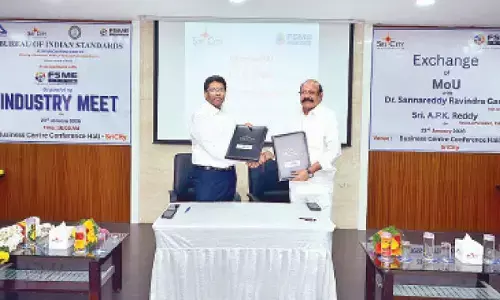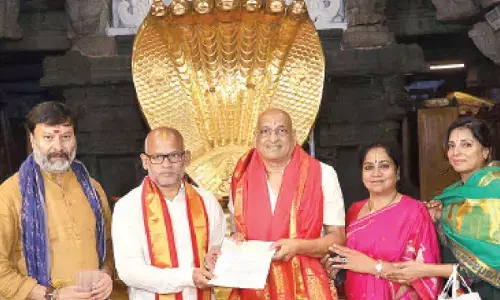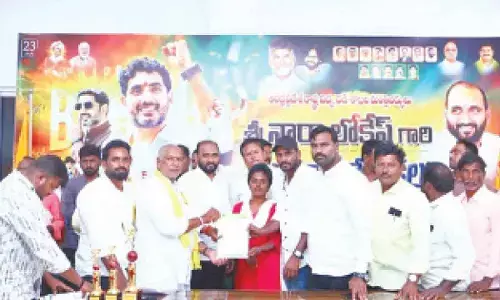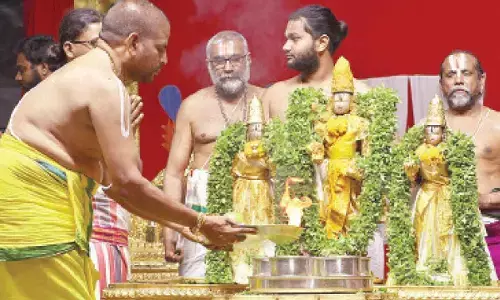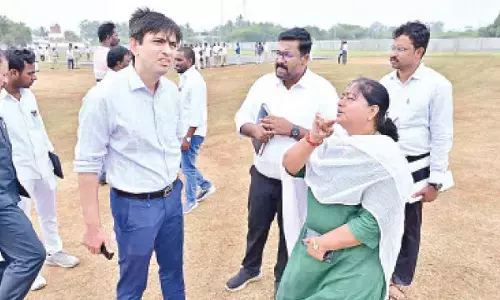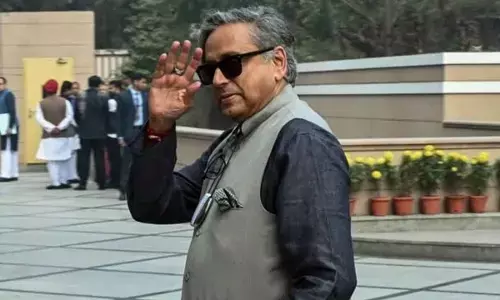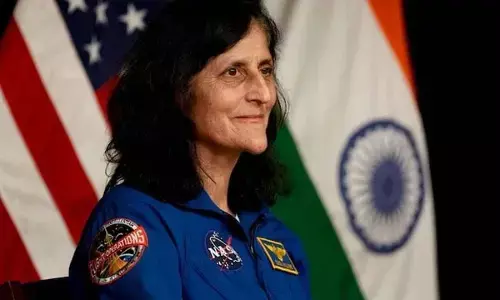Do our netas really bother about anyone of us?
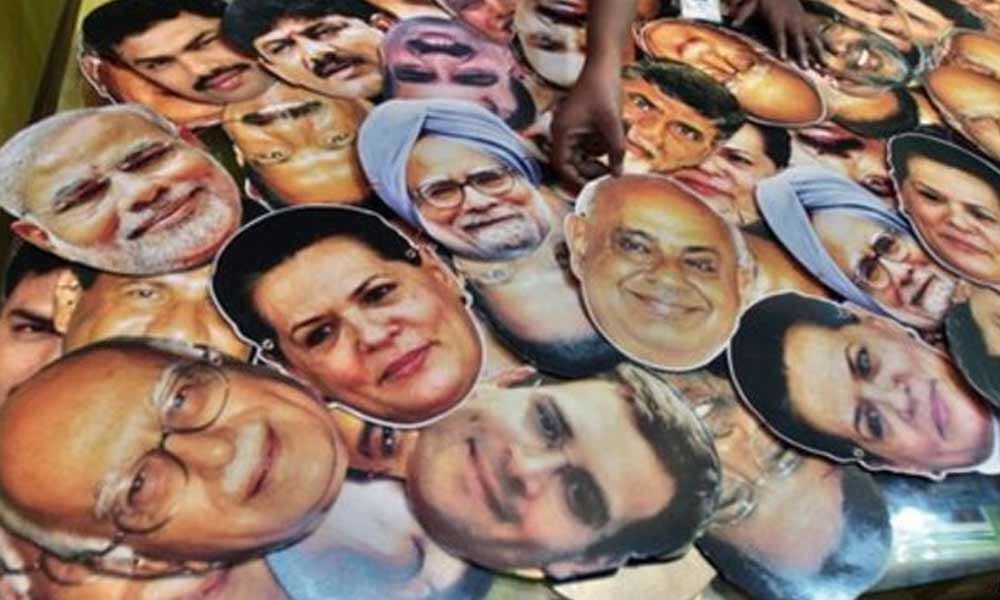
And so, it is clear now that we are not going to hear our politicians discuss anything that matters to us.
And so, it is clear now that we are not going to hear our politicians discuss anything that matters to us. We, the voters, do not bother them. We, the citizens, are not worth their considerations. All the political parties involved have displayed a remarkable arrogance so far by not raising much of the people's issues.
Farmers issue is fathom deep in their agenda and we have to strain our eyes and ears to locate it in their campaigns. Even when it is raised, it is not a priority. Please note this point.
Unemployment is certainly found in their menu, but again, as in case of farmers, it comes as a add on to their primary onslaught against the rival only to pay some lip service. It is also not a priority. The cause of Dalits is long forgotten.
Our political leadership has once displayed a remarkable agility and acumen in keeping them divided in every State, be it in Maharashtra, Uttar Pradesh, Bihar, Madhya Pradesh, Rajasthan and Karnataka. Jammu & Kashmir is a gone case anyway and no one bothers about its people. Yes, there are people in Jammu & Kashmir. Do you know that? Perhaps, you know. But, not our political elite.
For these blessed ones, for all you know, have concluded that In Jammu and Kashmir, as per census 2011, Muslim are majority in Jammu and Kashmir state. Muslims constitutes 68.31 per cent of Jammu and Kashmir population.
In all, Muslim form majority religion in 17 out of 22 districts of Jammu and Kashmir state. Hindu are minority in Jammu and Kashmir state forming 28.44 per cent of total population. Hinduism is followed in majority in four out of 22 districts - Jammu, Kathua, Samba and Udhampur. In 17 districts out of 22, Muslims are in majority and only Leh is Buddhist- dominated.
If one asks are they not people living in Kashmir, our politicians may not have any answer. Even among the Muslims, there are Pakistanis, pro-Pakistanis, anti-Indians and anti-Hindu elements and may be a few, just a very few from this segment, who are Indian nationalists. That is it. They cannot be people for the political parties.
They are, as they themselves, dub them, their constituencies. When one does not treat voters as people, truth becomes the casualty. There are politicians who seek to know the voice of their constituency. Right? How many have you seen of late? Nowadays, it is acceptable that politicians seek a constituency which advocates their political ideology or self-serving interest.
Speaking about the 'glorious' leadership that is driving our country to never before seen position of strength, we forget that joining the high table on an international arena is one thing and uplifting the masses from hunger and poverty is another .
There could be any number of Yojanas, NYAYs' or beautifully worded "Ashirvaads" in the process of 'Vikas' or in creating 'Golden States". But our manifestos are confined to doling out welfare ignoring the complex scenario and challenge for a country like India. Let us look at least one aspect of governance.
It is the obligation of the state to provide free and universal access to quality health-care services to its citizens. India continues to be among the countries of the world that have a high burden of diseases.
The various health program and policies in the past have not been able to achieve the desired goals and objectives. 65th World Health Assembly in Geneva identified universal health coverage (UHC) as the key imperative for all countries to consolidate the public health advances.
Accordingly, Planning Commission of India constituted a high-level expert group (HLEG) on UHC in October 2010. HLEG submitted its report in November 2011 to Planning Commission on UHC for India by 2022.
The recommendations for the provision of UHC pertain to the critical areas such as health financing, health infrastructure, health services norms, skilled human resources, access to medicines and vaccines, management and institutional reforms, and community participation.
India faces enormous challenges to achieve UHC by 2022 such as high disease prevalence, issues of gender equality, unregulated and fragmented health-care delivery system, non-availability of adequate skilled human resource, vast social determinants of health, inadequate finances, lack of inter-sectoral co-ordination and various political pull and push of different forces, and interests.
These challenges can be met only by a paradigm shift in health policies and programs in favor of vulnerable population groups, restructuring of public health cadres, reorientation of undergraduate medical education, more emphasis on public health research, and extensive education campaigns.
There are still areas of concern in fulfilling the objectives of achieving UHC by 2022 regarding financing model for health-care delivery, entitlement package, cost of health-care interventions and declining state budgets.
However, no leader or Government looks into it holistically to extend real care and concern. In the absence of sustained financial support, strong political will and leadership, dedicated involvement of all stakeholders and community participation, attainment of UHC by 2022 will remain a Utopia.
Talking of a yojana is easier while ignoring the financial burden. But politicians need not bother about these as there is no intent in the first place to implement any. And without fail, all these - those who cry for Mandirs, Masjids or go on temple runs (hiding the Janeu for a while later) - want to see that the plan of God comes to maturity in the lives of his people, one way or the other.
For those who insist that God has some address proof like in our Aadhar card or for those whose power rests with their high commands, the plan of God is no different from their scheme of things.
What is a promise in the first place? Prime Minister, Narendra Modi, has made a promise in the temple town of Tirupati to AP that he would accord it a Special Category Status. Later on, he promised the country 'Sab ka Saath, Sab ka Vikas'. Both these have not been realized. Now there is a race to promise a part of the country's GDP to welfare which again is bogus.
There was a divine promise contained in several verses of Genesis in the Torah, where upon the Lord had said to Abram, "Leave your country, your people and your father's household and go to the land I will show you" but also added "to your offspring (or seed) I will give this land".
However, commentators have noted several problems with this promise and related ones: It is to Abram's descendants that the land will (in the future tense) be given, not to Abram directly nor there and then. However, how this verse relates to the promises is a matter of controversy.
Because, there is nothing in the promise to indicate God intended it be applied to Abraham's physical descendants unconditionally, exclusively (to nobody but these descendants), exhaustively (to all of them) or in perpetuity.
Of course, if you question the promises now in the country, you can only be an anti-national or anti-region or anti-community. Can't help it? This is a much- promised land!








